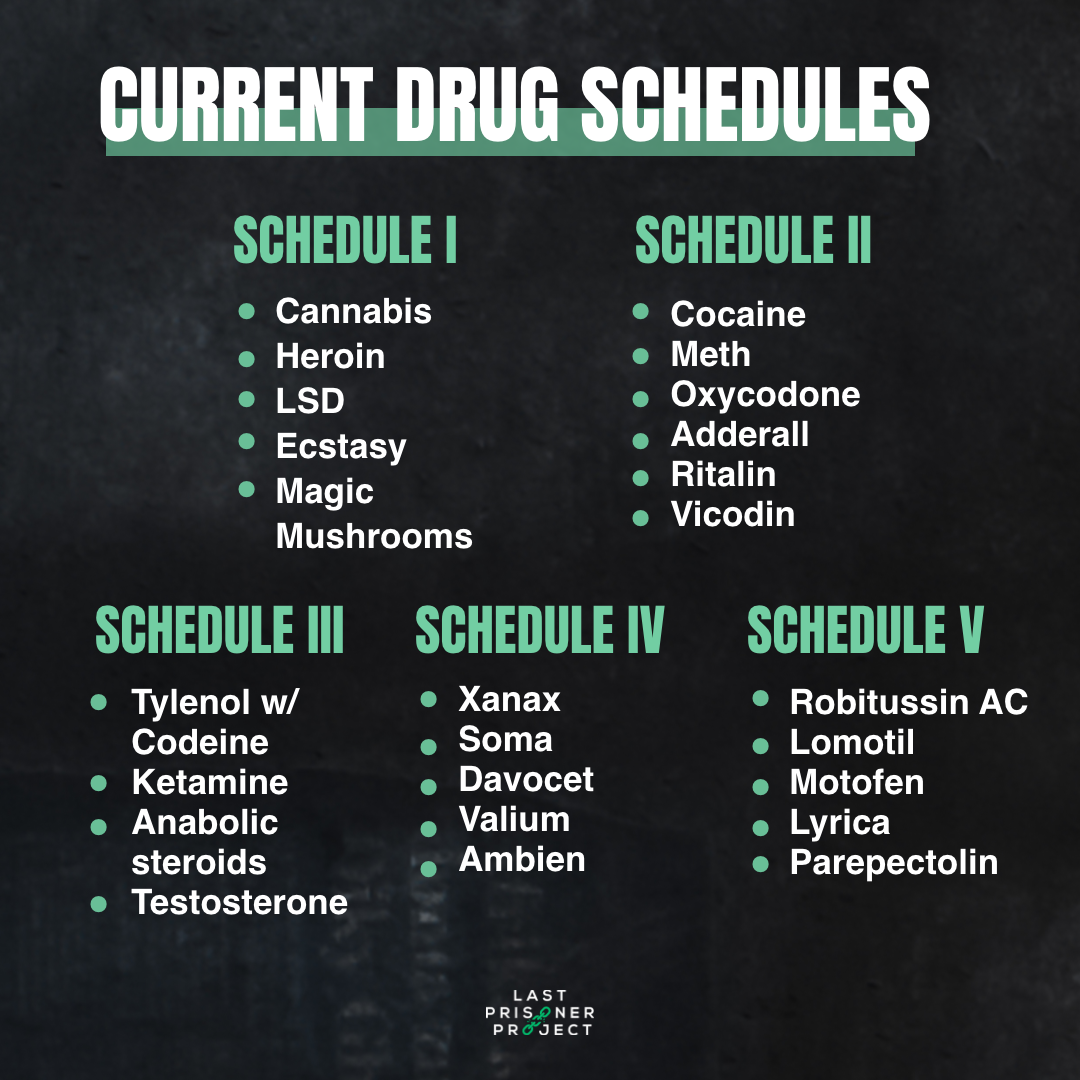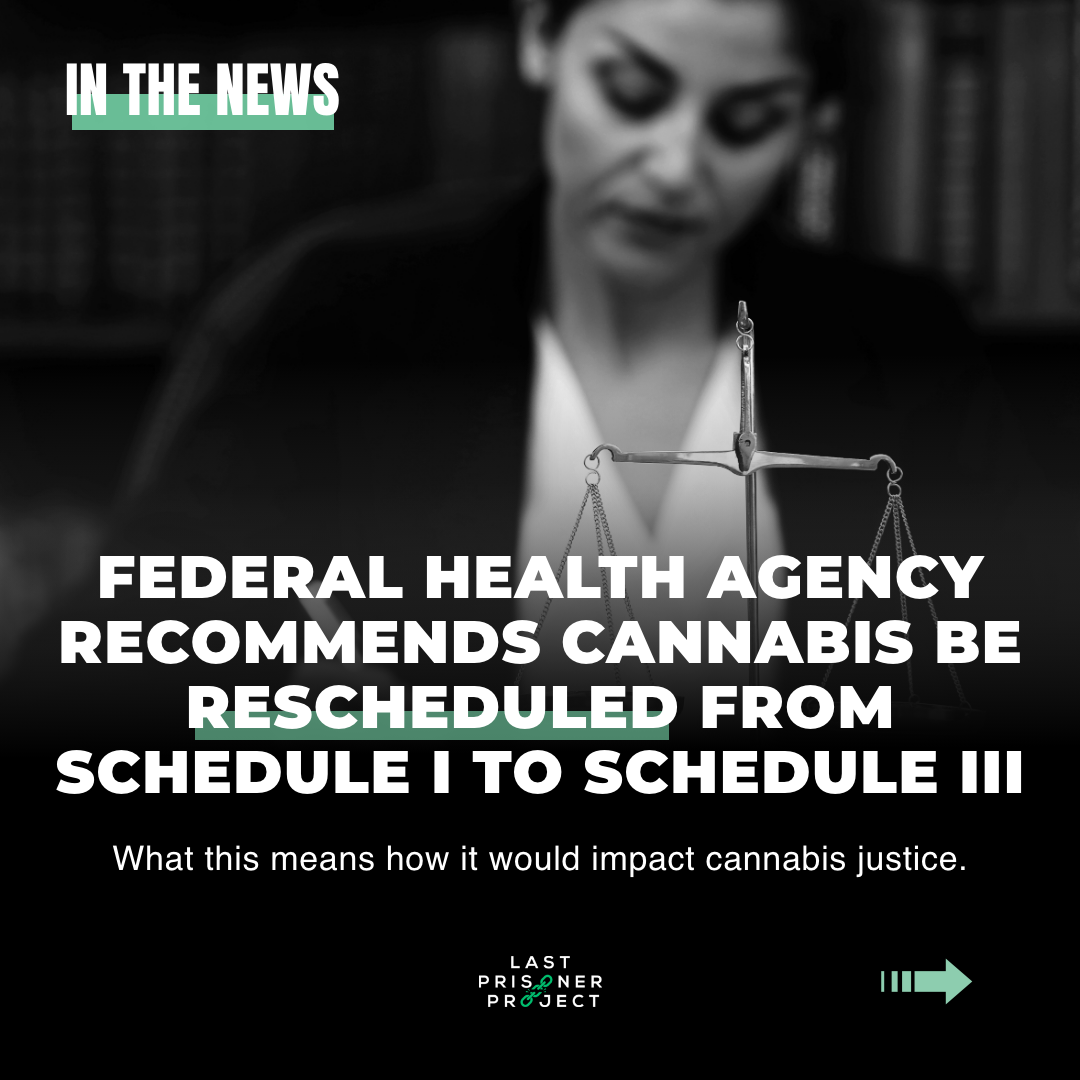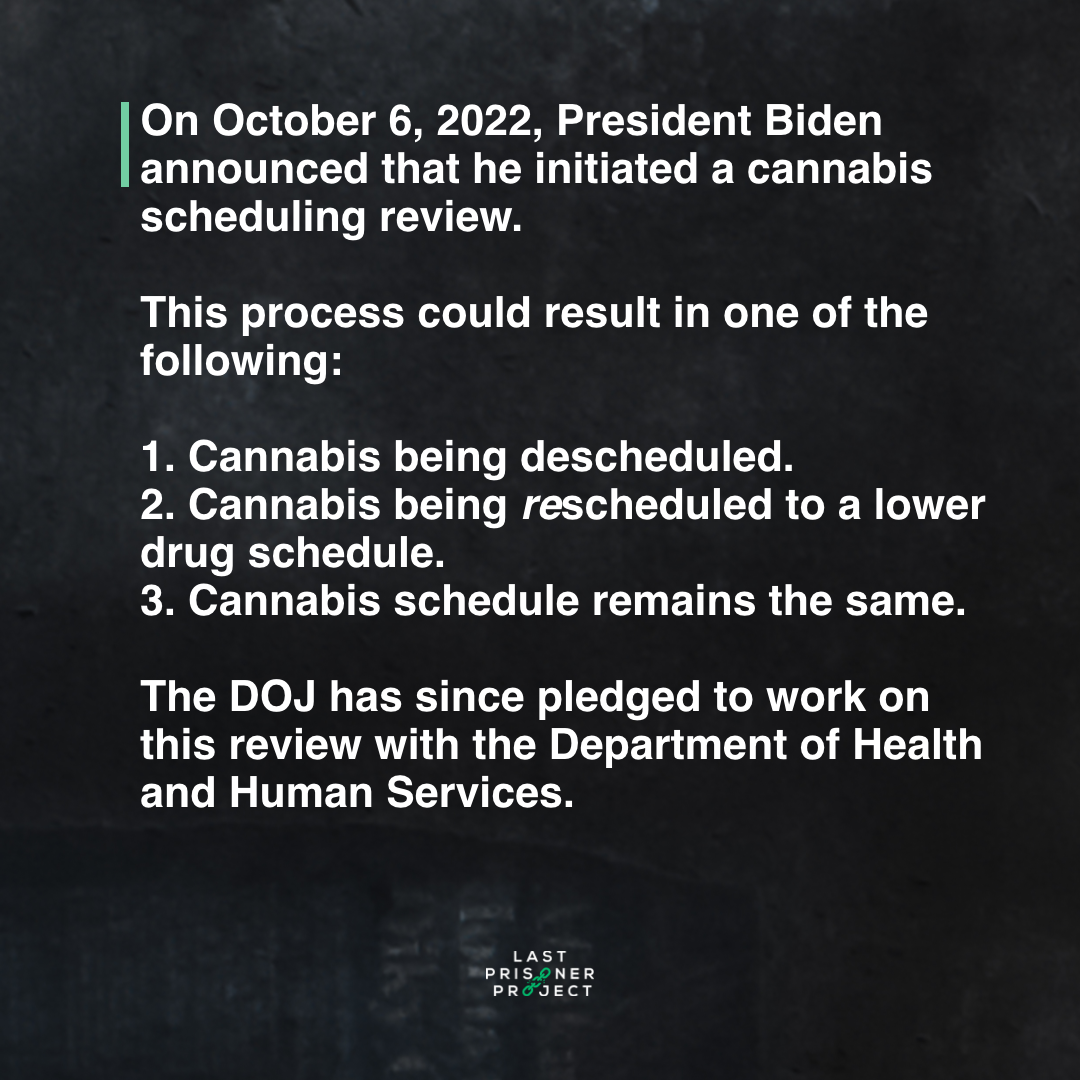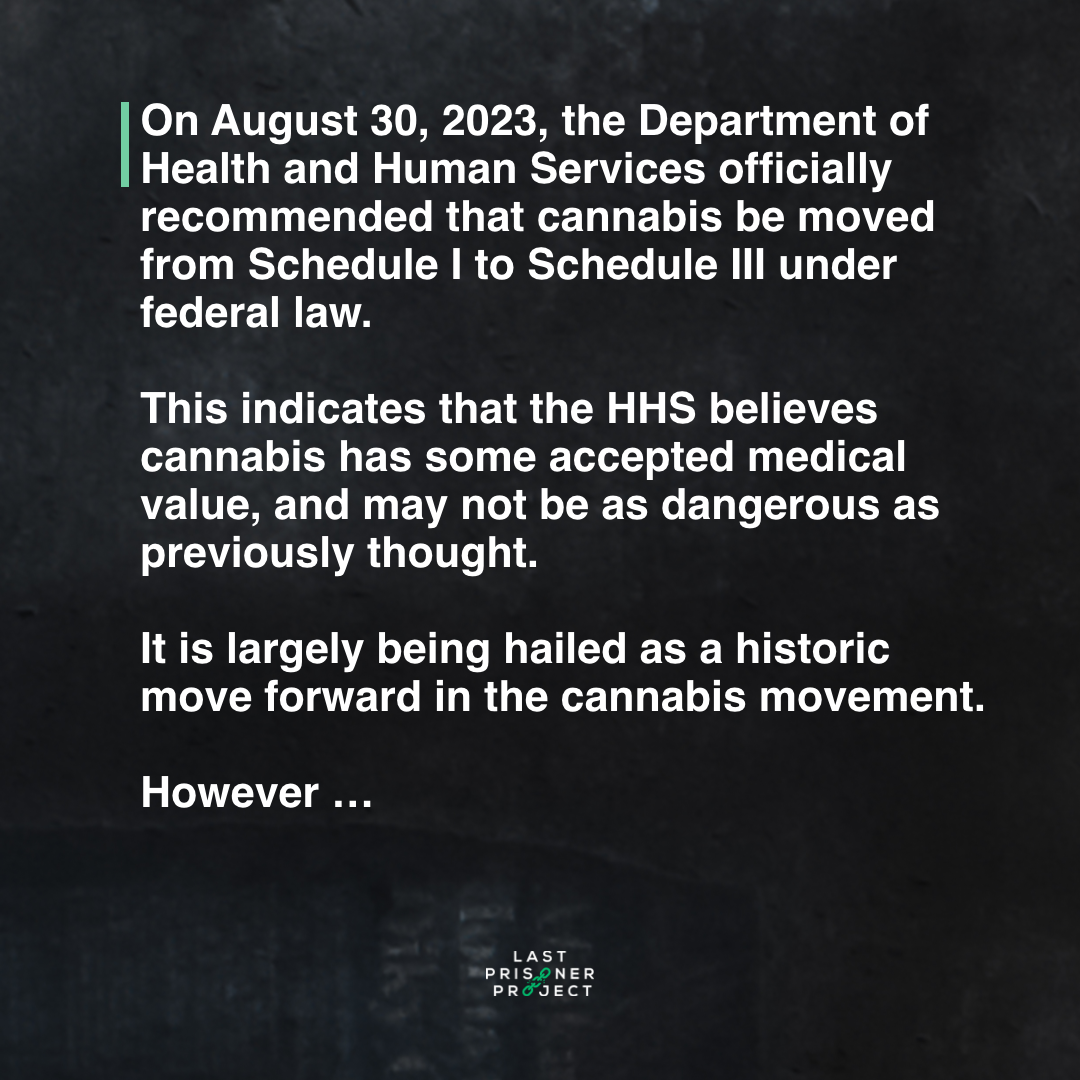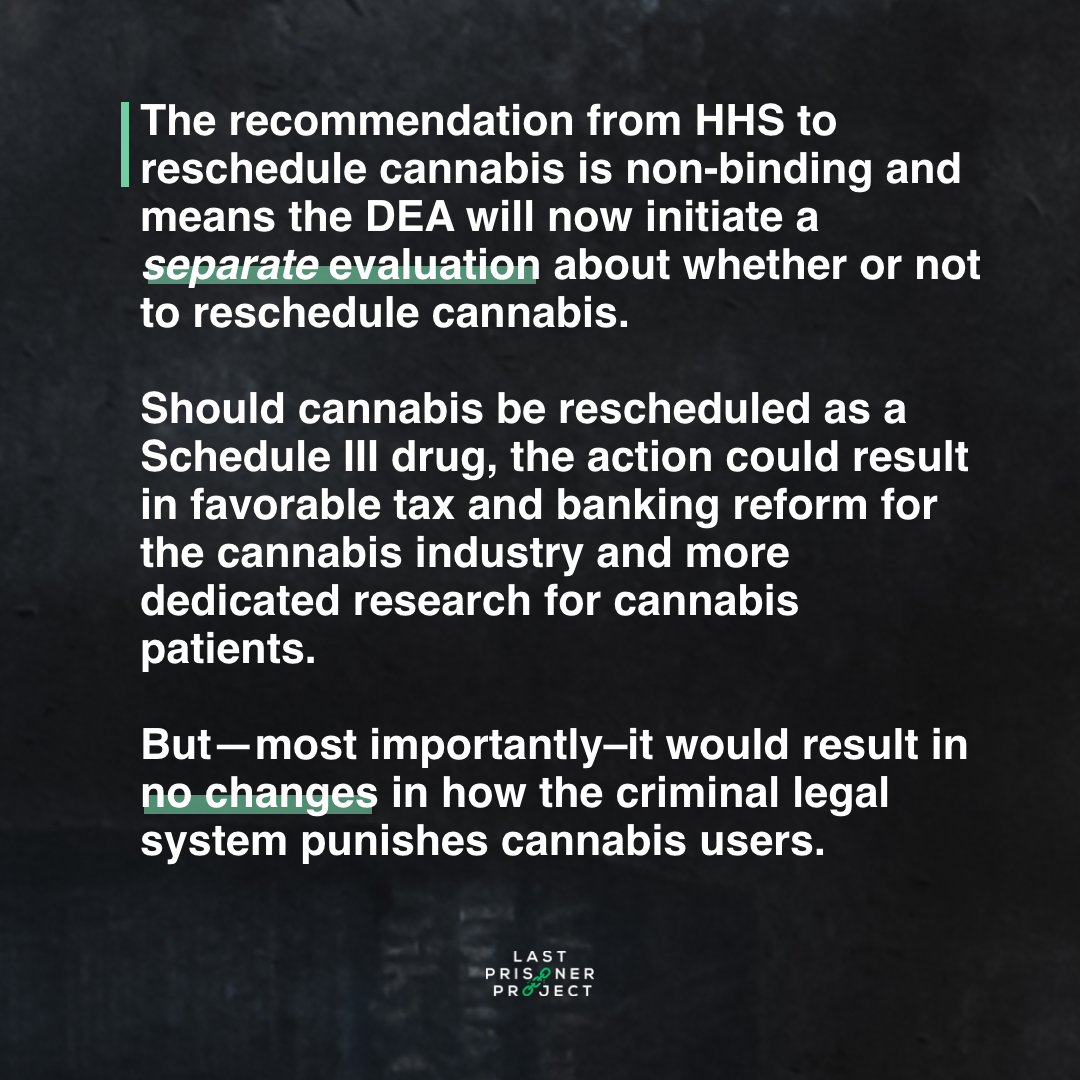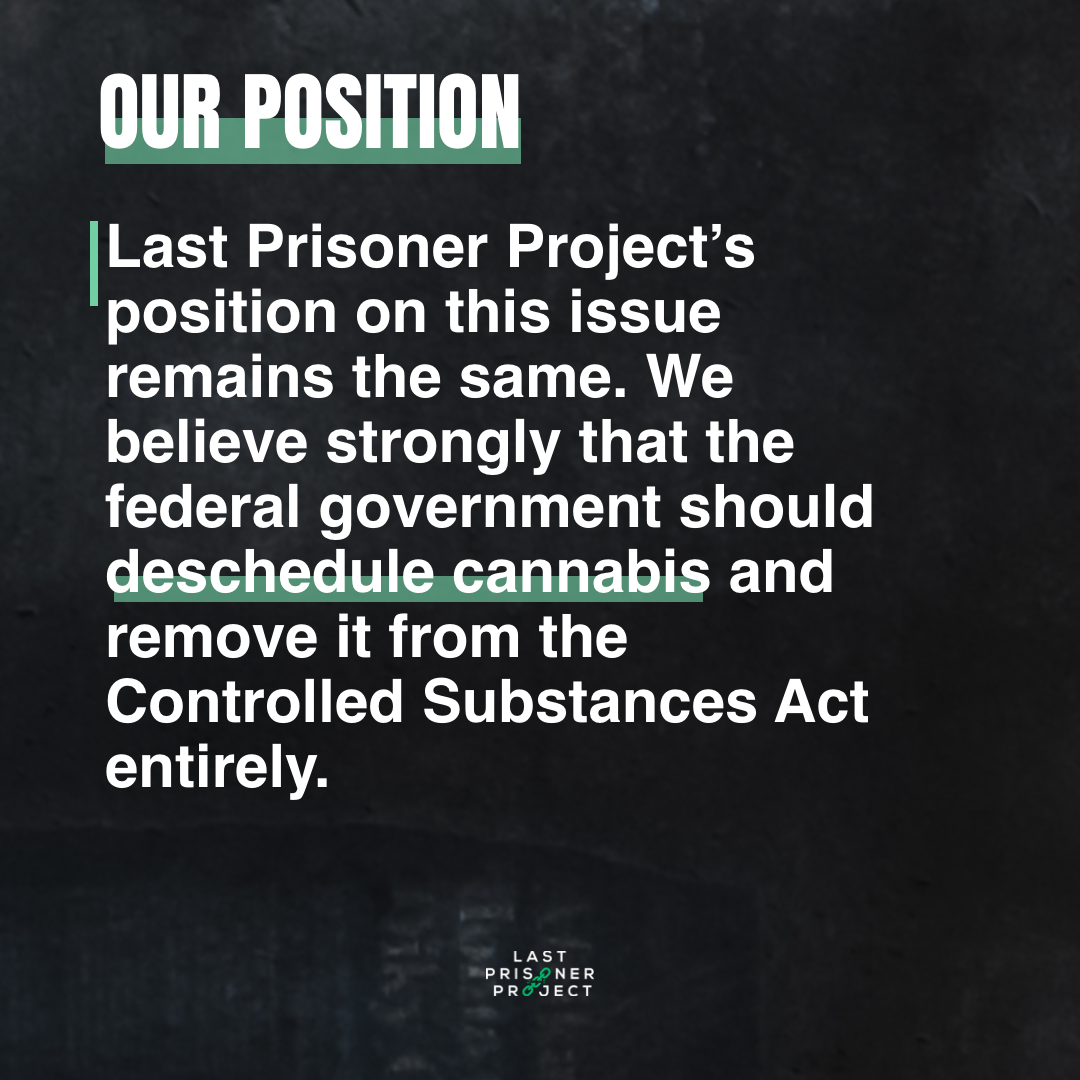Department of Health and Human Services Recommends Cannabis be Rescheduled from Schedule I to Schedule III
Rescheduling is not legalization, and the existing penalties for cannabis remain unchanged.
In October of 2022, President Biden made a series of historic cannabis-related executive actions. First, he signaled his intent to pardon individuals convicted of certain federal cannabis offenses,
a promise LPP continues to ensure is fulfilled at the federal and state level. In that same announcement, the President also committed the Department of Justice to work with the Department of Health and Human Services (HHS) to swiftly review how cannabis is scheduled under federal law. Yesterday’s announcement by the HHS to reschedule cannabis from a Schedule I drug to a Schedule III drug is the culmination of a nearly year-long scientific and medical evaluation, but what exactly does it mean?
What Is Drug Scheduling?
In 1970, President Richard Nixon signed the Comprehensive Drug Abuse Prevention and Control Act into law. Title II of that legislation, the Controlled Substances Act (CSA), created a process for classifying illicit drugs, substances, and chemicals into five distinct categories or schedules. Substances are placed into each schedule based on their medical value, safety for medical treatment, and potential for dependency and/or abuse. These classifications work on a sliding scale: Schedule I drugs are substances deemed to have no medical use and contain a high potential for abuse; Schedule II-V drugs are considered to have some medical value and lower but varying potential for dependence or abuse.
A substance’s schedule has both legal, financial, and regulatory implications. For example, the CSA explicitly outlawed the commerce of Schedule I drugs, meaning it is illegal to conduct any business or economic activity that involves a Schedule I Drug. Additionally, Schedule I drugs are subject to more restrictions on research, supply, and access than Schedule II drugs, which are subject to more restrictions than substances in Schedule III-V. Below are some examples of how certain substances are currently regulated:
What Effect Would Rescheduling Cannabis as a Schedule III Drug Have?
The responsibility for scheduling, rescheduling, and descheduling illicit drugs lies within the Department of Health and Human Services (HHS) and the Drug Enforcement Administration (DEA), which is under the Department of Justice. The recommendation from HHS to reschedule cannabis is nonbinding and means the DEA will now initiate a separate evaluation about whether or not to reschedule cannabis. Should cannabis be rescheduled as a Schedule III drug, the action could result in some favorable tax and banking reform for the cannabis industry, in more dedicated research for cannabis patients, but – importantly – no changes in how the criminal legal system punishes cannabis users.
Rescheduling is a peripheral change that signals the reevaluation of cannabis but not the release of cannabis prisoners or relief for those who continue to be burdened by lasting consequences of the carcel system. In short, this announcement represents progress but not justice.
Last Prisoner Project believes that full descheduling is a necessary step towards correcting the injustices of the past and creating a fair and equitable criminal legal system. We will continue to work tirelessly to ensure that individuals burdened with past cannabis convictions are resentenced and have their records cleared, regardless of the federal scheduling decision.



